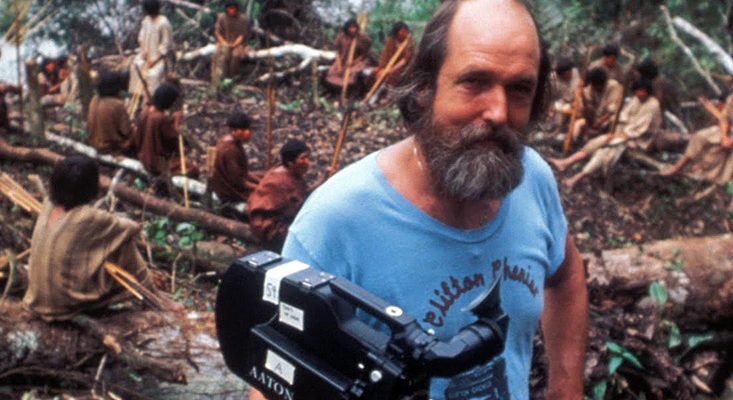
“God Respects Us When We Work, but Loves Us When We Dance” (1968)
A short, kaleidoscopic look back at Los Angeles’ first love-in, “God Respects Us When We Work, but Loves Us When We Dance” is a broadly affectionate time capsule of Easter Sunday, 1967. A wordless 20-minute portrait of the Woodstock-like event, ‘God Respects Us’ takes its cues from the music that draped over the day, Blank abandoning any diegetic sound and stitching the film together with the forward momentum of a medley. It’s hippies as far as the eye can see, thousands of people of all colors, shapes, and sizes undulating to endless waves of the most generic acid jams. This is freedom at its finest, or at least it’s most uninhibited, and Blank is right there in it with the rest of them. His camera picks out a few faces from the crowd, returning to them throughout the film in order to provide the thinnest strand of a narrative. While the emphasis is on the crowd as a collective, the stars of the show are undoubtedly a young couple who are mimicking sex to the rhythm of the music (at least, we think they’re mimicking sex—but then again, who says docs can’t be ambiguous?). Blank loves these people, and if our hindsight renders them somewhat naive, the film closes with an excerpt from the Divyāvadāna that forces modern viewers to surrender their perspective: “What we have done will not be lost to all eternity. Everything ripens at its time and becomes fruit at its hour.” [B]

“Gap-Toothed Women” (1987)
If ever there was a film that delivered on its promise, it’s “Gap-Toothed Women.” A celluloid version of Buzzfeed’s “16 Reasons to Be Proud of Your Gap Teeth,” made years before every possible variation of the human race had a listicle of their own to make them feel normal, ‘Gap-Toothed Women’ is a 31-minute ode to “the teeth of happiness” and the women who wear them. Again unpacking how this one small detail has shaped the lives of those who share it, Blank reaches all the way back to Chaucer, who may not have understood the damage he was doing when he wrote that gap-toothed women were “fond of traveling” (that’s Middle Ages-speak for “loose”). While that particular prejudice may have faded away, Blank is obviously compelled by the bullshit of beauty standards, training his camera on a trait that they have never really favored. More than just a simple message movie about how people would be happier if they just embraced the way they look—though it is certainly that—Blank’s brief inquiry distills testimony from more than 100 women (including gap-tooth poster child Lauren Hutton) to demystify the assumption that a diastema is something to be ashamed of. But what makes the short so universally compelling is how Blank’s narrow focus always manages to point to the world beyond those crippling millimeters of self-doubt—all of his films, this one included, exist to show just how much there is to enjoy in the world when you’re not too busy worrying about what someone thinks of your teeth. [B+]

